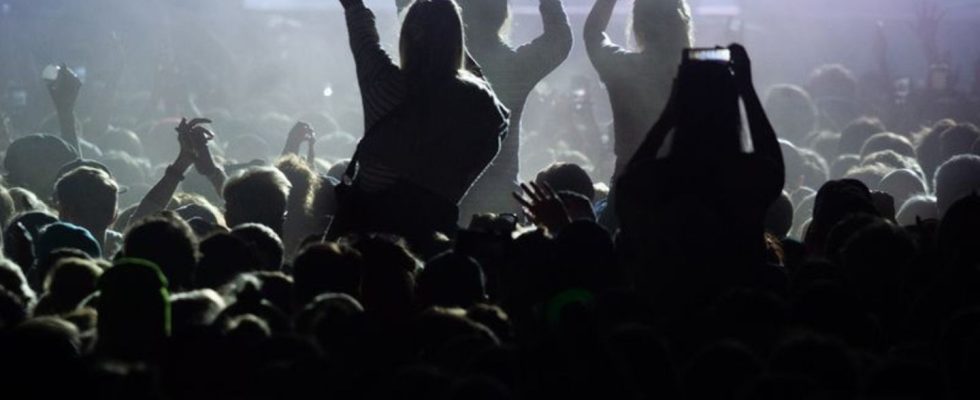study
Live music evokes more emotions than recorded music
Festival visitors in front of a stage at the music and art festival “MS Dockville” in Hamburg. photo
© Jonas Walzberg/dpa
Listen to music from recordings instead of spending a lot of money on concert tickets? Of course it works, but there is no comparison for the emotional center of the brain, shows a Swiss study.
This is mainly because the pianist can react to the behavior of those listening. In the experiment, twelve short pieces of music were played to them – either live by a pianist and a pianist or as a recording. Meanwhile, magnetic resonance imaging was used to measure the test subjects’ reactions in the amygdala, a part of the brain that is involved in the development of emotions.
Live music is like an emotional journey
The result was shown to the musicians in real time. They would have been instructed to change their playing in such a way that the emotions were intensified – for example by changing the volume, tempo, sound quality or hitting more keys.
The experiment showed that there was a much higher and more consistent activity in the amygdala during live music than when listening to recorded music when the musicians were unable to react to the listeners’ well-being.
According to Frühholz, with live music, the pianist or a band receives feedback from the audience, which fires up the musicians and which in turn fires up the audience. His team was now able to measure that.
According to Frühholz, this may be due to the evolutionary roots of music. People have always used tools and instruments to make live music. “People long for the emotional experience of live music,” quoted the University of Frühholz. “We want musicians to take us on an emotional journey with their performance.”
According to the BBC, the researchers want to repeat the technically very complex experiment, but with a larger audience and in a concert-like environment.

